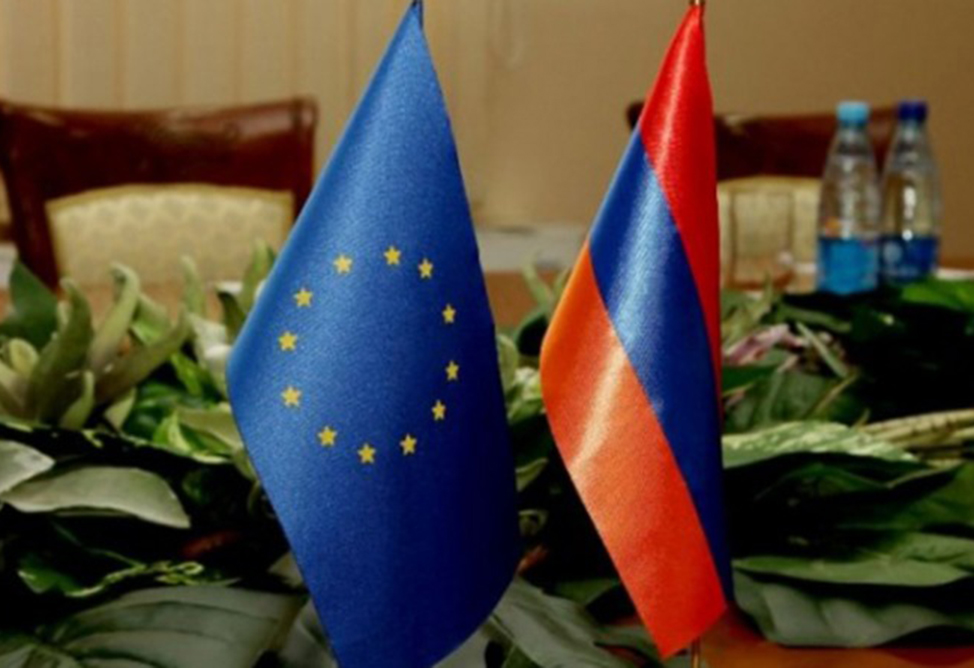OSCE Minsk Group Co-Chairs slam pace draft resolution on Karabakh
13.11.2015,
11:18
Mediators representing the United States, Russia and France on Thursday warned the Council of Europe’s Parliamentary Assembly (PACE) against “disrupting” the Nagorno-Karabakh peace process in their joint response to a pro-Azerbaijani draft resolution approved by a key PACE committee, azatutyun.am reports.

YEREVAN, November 13. /ARKA/. Mediators representing the United States, Russia and France on Thursday warned the Council of Europe’s Parliamentary Assembly (PACE) against “disrupting” the Nagorno-Karabakh peace process in their joint response to a pro-Azerbaijani draft resolution approved by a key PACE committee, azatutyun.am reports.
The resolution demands Armenian withdrawal from Karabakh and the territory’s return to Azerbaijani rule and says that the three mediating powers should “consider reviewing” their peace efforts accordingly.
Warlick and his fellow Minsk Group co-chairs from Russia and France -- Igor Popov and Pierre Andrieu – commented on the PACE move in a special joint statement issued in Vienna.
“We share concerns, expressed in the resolution, regarding an increase of tensions along the border of Armenia and Azerbaijan and along the Line of Contact … We agree that the conflict has lasted too long,” they are quoted by azatutyun.am as saying in their statement.
The mediators emphasized, however, that they are “neither judges nor advocates for particular positions.” “There are proposals to create new negotiating formats and working groups on the settlement of the conflict,” they said. “We believe that in the framework of the Minsk Group there is unique mediation experience. The Minsk Group format is accepted by the parties and has the full confidence of all OSCE participating States.”
“Considering the sensitivity of the negotiations, attempts to change the format or create parallel mechanisms can disrupt the negotiation process and impede progress towards a settlement,” warned Warlick, Popov and Andrieu.
Karabakh conflict broke out in 1988 when Karabakh, mainly populated by Armenians, declared its independence from Azerbaijan. On December 10, 1991, a few days after the collapse of the Soviet Union, a referendum took place in Nagorno-Karabakh, and the majority of the population (99.89%) voted for secession from Azerbaijan.
Afterwards, large-scale military operations began. As a result, Azerbaijan lost control over Nagorno-Karabakh and the seven regions adjacent to it.
Some 30,000 people were killed in this war and about one million people fled their homes.
On May 12, 1994, the Bishkek cease-fire agreement put an end to the military operations.
Тalks brokered by OSCE Minsk Group are being held over peaceful settlement of the conflict. The group is co-chaired by USA, Russia and France. ---0-----
The resolution demands Armenian withdrawal from Karabakh and the territory’s return to Azerbaijani rule and says that the three mediating powers should “consider reviewing” their peace efforts accordingly.
Warlick and his fellow Minsk Group co-chairs from Russia and France -- Igor Popov and Pierre Andrieu – commented on the PACE move in a special joint statement issued in Vienna.
“We share concerns, expressed in the resolution, regarding an increase of tensions along the border of Armenia and Azerbaijan and along the Line of Contact … We agree that the conflict has lasted too long,” they are quoted by azatutyun.am as saying in their statement.
The mediators emphasized, however, that they are “neither judges nor advocates for particular positions.” “There are proposals to create new negotiating formats and working groups on the settlement of the conflict,” they said. “We believe that in the framework of the Minsk Group there is unique mediation experience. The Minsk Group format is accepted by the parties and has the full confidence of all OSCE participating States.”
“Considering the sensitivity of the negotiations, attempts to change the format or create parallel mechanisms can disrupt the negotiation process and impede progress towards a settlement,” warned Warlick, Popov and Andrieu.
Karabakh conflict broke out in 1988 when Karabakh, mainly populated by Armenians, declared its independence from Azerbaijan. On December 10, 1991, a few days after the collapse of the Soviet Union, a referendum took place in Nagorno-Karabakh, and the majority of the population (99.89%) voted for secession from Azerbaijan.
Afterwards, large-scale military operations began. As a result, Azerbaijan lost control over Nagorno-Karabakh and the seven regions adjacent to it.
Some 30,000 people were killed in this war and about one million people fled their homes.
On May 12, 1994, the Bishkek cease-fire agreement put an end to the military operations.
Тalks brokered by OSCE Minsk Group are being held over peaceful settlement of the conflict. The group is co-chaired by USA, Russia and France. ---0-----



